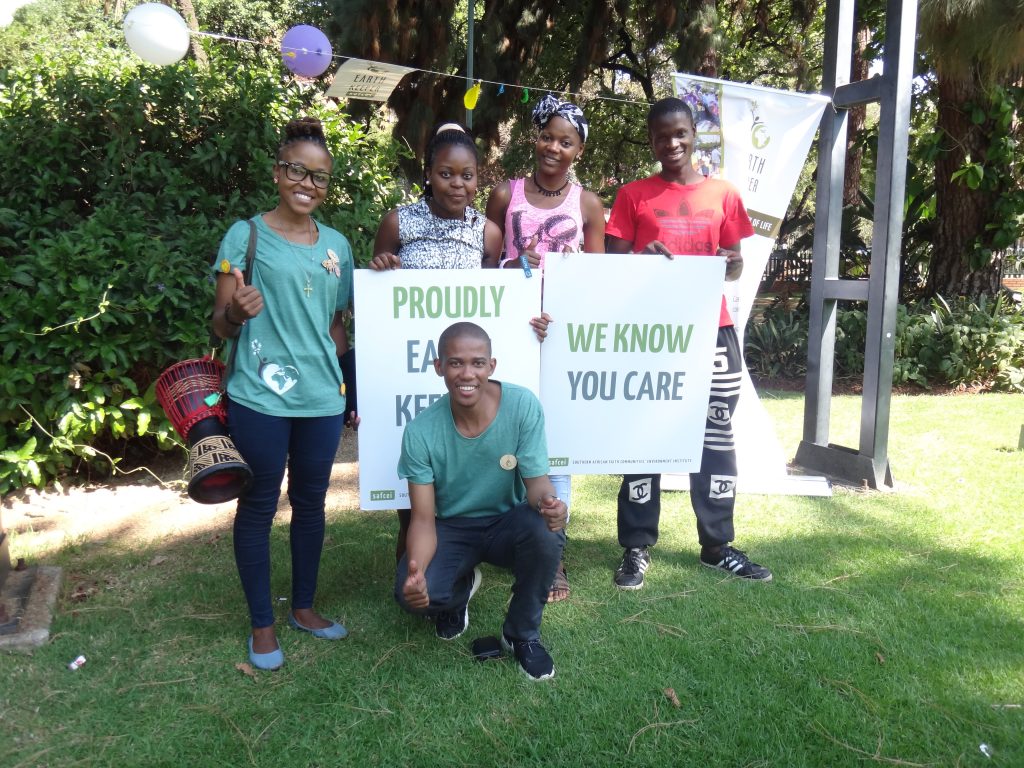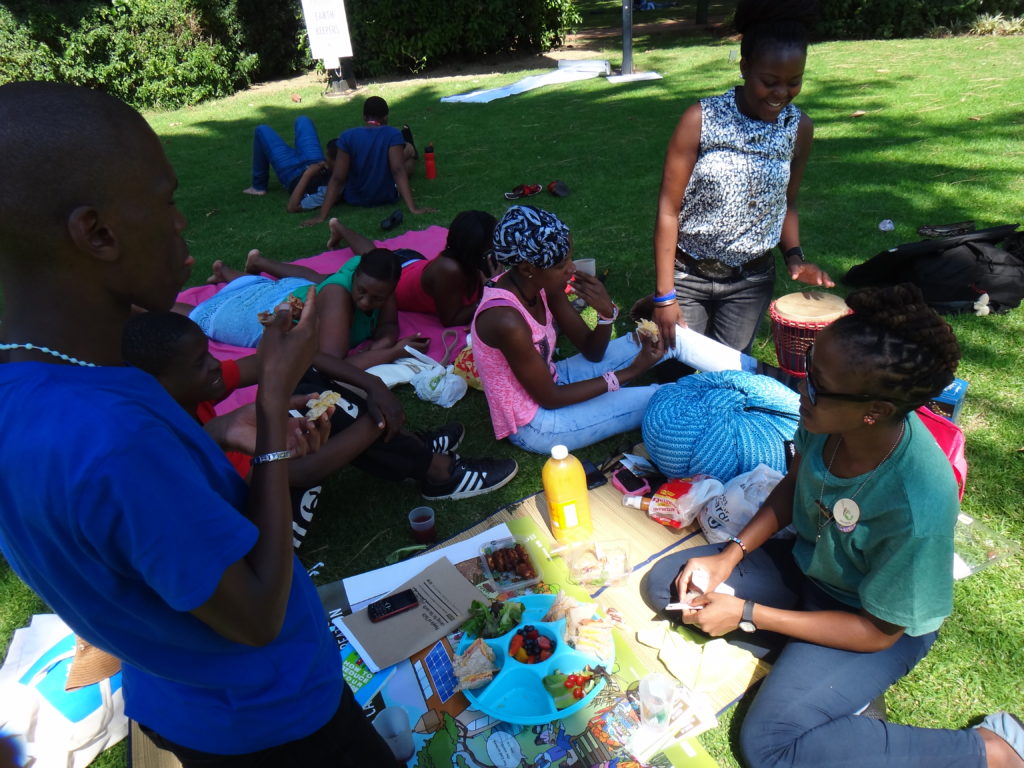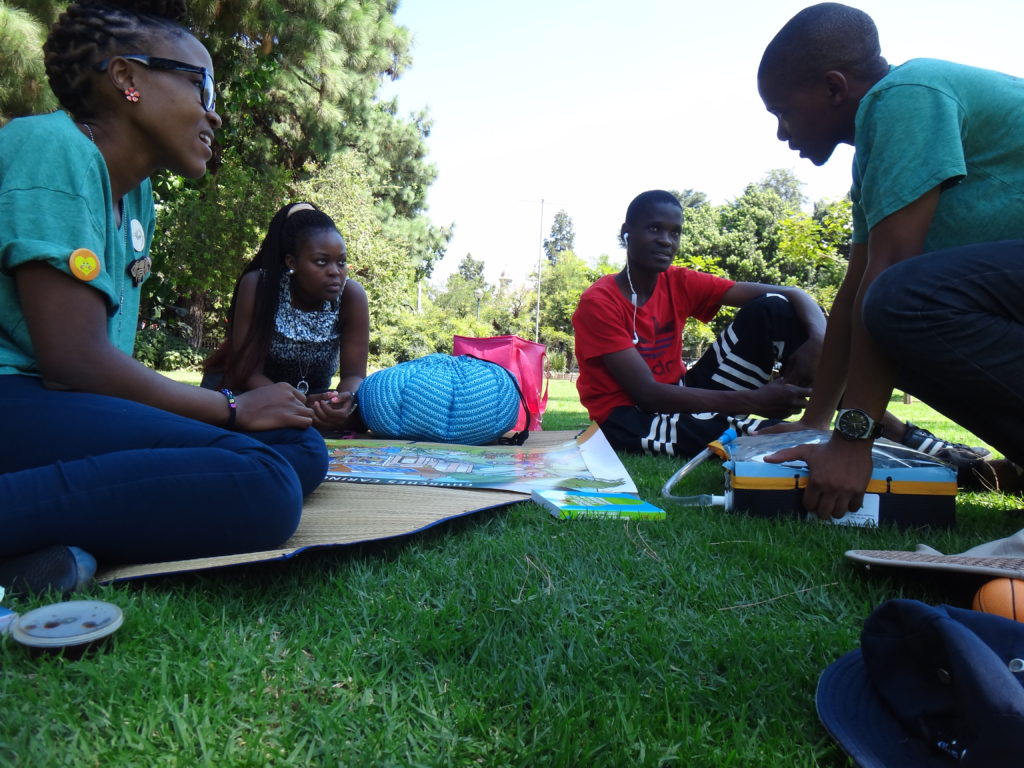Earth Keeper Day celebrated in Tshwane
- Published:
SAFCEI staff in Tshwane celebrated Earth Keeper Day on Saturday 13 February in Burgers Park. SAFCEI’s Lydia Mogano reflects on the event.

We spent our day at Burgers Park chatting with ordinary people about our connectedness to the earth and the pragmatic value taking care of the environment.
We started off with fun ice breakers and energizers to get to know each other better. Then we migrated from superficial discussions about littering to deeper discussions about the meaning of environment (in the context of claiming space, responsibility and Ubuntu).

We expanded the topic to include waste, enjoying free basic rights such as clean water and air as well as recognizing that environmental awareness and action does not necessarily belong only to the scientists but it is knowledge and action that anyone can do anywhere.
There is a general perception that the youth are ignorant but clearly our group was not. They stressed that one of the problems they have with tackling environmental issues is because behaviour change often stimulates a negative feedback from community members, especially when their actions are unsustainable. Therefore the environmental job market is not always attractive.
Then we explored various practical behavioural adjustments we could apply at home to save water, electricity, and reduce household waste, carbon, as well as in minimizing flood and storm impacts through tree planting and redesigning landscapes to adapt.
For instance, Tsepo showed how one can save both electricity and water by using a solar geyser. I showed how we could save electricity and water (or wood/charcoal if one is unable to afford electricity) by using a wonder bag. Moreover, we learnt more about the potential potency and impact of carbon in the atmosphere through a science experiment and we talked about a great Renewable Energy potential that exists for young people to explore and innovate.
Conducting eco-audits (e.g., of water and electricity) can give congregations and households an opportunity to be aware of their consumption and then encourage further sustainable behavioural adjustments more effectively. Since our country has been experiencing heat spells and water shortages, this exercise can make big difference if everyone plays their part.

“We don’t usually pay for water in rural areas back at home, so we might not need an audit” said Ouma, one of the youths. Although the concept of conducting “audits” may usually have strong financial connotations, we should also look at it the context of our consumption patterns and more importantly, sustainable living should continue to enable free access to safe drinking water for everyone while addressing climate change.
All of these not only improve the environmental health, but also improve our own physical and psychological well-being. One of the participants endorsed this point by pointing out the value of enjoying good quality air in the Park and that it should also be enjoyed at home.
We ended off with singing local gospel songs and a prayer thanking God for the blessing we have in creation as well as His everlasting love, grace and provision.
Overall, I was surprised at how much we spoke on so casually in a few hours and was inspired to hear Daniel, one of the youths say: “At least I am not completely in the dark!” Our group enjoyed our discussions and related activities and they wanted to be involved. They wished that such initiatives could be spread further into their communities.
Who we are

SAFCEI (Southern African Faith Communities’ Environment Institute) is a multi-faith organisation committed to supporting faith leaders and their communities in Southern Africa to increase awareness, understanding and action on eco-justice, sustainable living and climate change.
Featured Articles
-

South Africa: Who Ends Up Paying If DMRE Cooks the Price of Nuclear Power?
-

South Africa’s nuclear energy expansion plans continue to draw criticism, environmental NGOs chew over legal challenge
-

Earthlife Africa and SAFCEI respond to latest unsettling nuclear news regarding the ministerial determination
-

Open Wing Alliance Africa (Virtual) Summit 2023
-

The Green Connection and SAFCEI respond to energy minister's divisive and deflecting comments
-

Job Vacancy: FLEAT Coordinator







